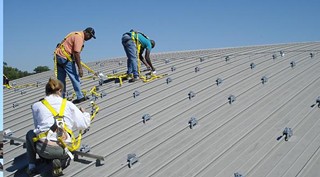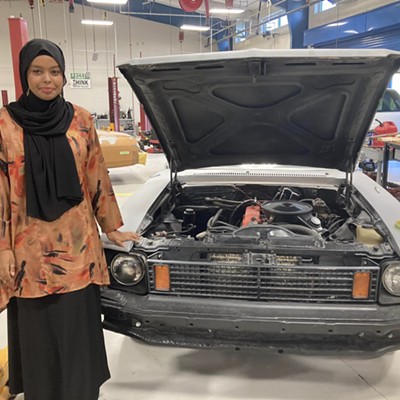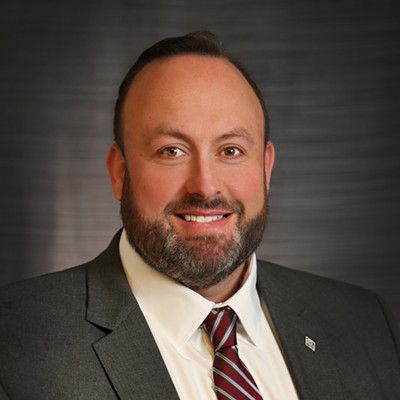Some kids know exactly what they want to be when they grow up: Doctor, lawyer, teacher — all clear educational paths that lead to surefire careers.
For those without such a calling, choosing a major can cause massive anxiety: Will I be employable? With all the chaos in world, will there be anyone left to employ me?
The upheavals in the global economy and environment are actually excellent news for the undeclared. New, innovative technologies and industries are evolving at lightning speed, and today’s students are the potential workforce. Keep up with the learning curve with these vanguard programs offered around Savannah:
Savannah State University: Marine Science
It’s hard to believe that was once thought that the ocean was so big it didn’t matter what or how much of it was dumped in it. Now that we’re keenly aware that the health of our waters reflects the overall situation of the planet, we need more people than ever to come up with ways to deal with climate change, pollution, overfishing, habitat loss, environmental degradation, toxic runoff and plenty of other environmental challenges.
Savannah State’s Marine Science program is lauded not only for its diversity (the university is the oldest Historic Black College in Georgia) but its state–of–the–art facilities–some of which it comes by naturally.
Tucked away back on the marsh in Thunderbolt, undergraduates and graduate students tackle environmental issues in an open–air laboratory perfectly suited for coming up with solutions.
“This is the ground zero of the Lowcountry,” says Dr. Matthew Gilligan, SSU’s Marine Science program coordinator and marine biology professor.
“Forty percent of the saltwater marsh on the East Coast is in Georgia and South Carolina, and we’re right in the middle of it.”
This year the program launched the fully–equipped 36–foot research vessel Margaret C. Robinson, providing even more opportunity for students to be on the water. Graduates move into higher–level research and teaching positions as well as jobs in clean water management, natural resources and saving sea turtles.
“The policymakers need to rely on good science to make decisions about the future of the environment,” says Dr. Gilligan. “And our graduates are well–equipped to provide that.”
SCAD: Design for Sustainability
Every product we buy and service we use has a backstory: Someone (or someones) mulled for months over the packaging of your favorite snack or the way you’re routed through security at the airport; the aim of sustainable design is make that packaging biodegradable and those lines as efficient and easy–to–navigate as possible.
But in this Masters’ and undergraduate minor program, “sustainability” is more than just a buzzword for a green potato chip bag.
“Sustainability is taught as a social and cultural imperative, not only as an economic and environmental one,” Scott Boylston, SCAD professor of Sustainable Design and Graphic Design.
“While some of the program focuses on typical green design issues like material choice, material productivity and energy efficiency, other parts of the program explore ways in which designers can engage people as co–creators of solutions.”
Incorporating environmental technologies with traditional disciplines to learning to design for sustainability means taking into account the “interconnectedness between business and environment and between human beings and nature,” according to SCAD’s website.
This translates into long–term shelf life, less waste and more intuitive interaction in business and beyond.
“Systems thinking is an essential element of the program,” says Boylston.
Students who enter the program have diverse backgrounds, including expected fields like architecture and industrial design but also less predictable backgrounds like hospitality, journalism and sculpture. Graduates tend towards positions in the corporate sector or join consulting firms in a multitude of creative fields where their knowledge can be applied to goods and services we humans use every day.
Who knows? You could design a pencil sharpener that eats its own shavings or an airport security system that allows us to keep our shoes on.
Armstrong Atlantic State University: Graduate Certificate in Cyber Affairs and Security
Here’s the downside to all of our advanced technology: The bad guys don’t even have to get dirty anymore to commit all kinds of crime. Identity theft, money laundering, human trafficking and other illegal activities can be conducted with nothing more than a computer and a wi–fi connection.
The good news is that justice is right behind them:
The Graduate Certificate in Cyber Affairs and Security at Armstrong Atlantic State University trains grads in the specialized skills of how to keep information, money and people safe in the ever–expanding online universe. Data encryption, computer forensics, disaster recovery, cyber security policy and legal study (think Patriot Act) and other aspects are covered in the nine–hour program, which is (fittingly) conducted completely over the Internet.
“One of the great things about this is that it is offered a hundred percent online,” says Dr. Zaphon Wilson, head of AASU’s Department of Criminal Justice, Social and Political Science.
“Students anywhere in the world can enroll in this state–of–the–science program.”
The post–Bachelor’s certificate attracts students of information technology, computer science and criminal justice as well as those already working in law–enforcement and private security looking to amp up their expertise.
“This certificate provides a strong foundation for professionals and students interested in combating Internet crime, preventing cyber attacks and intrusion on websites, conducting forensic investigations and basically using all available tools to combat the bad guys who pose a threat on the Internet,” says Dr. Wilson.
The program can be completed in one calendar year, including one summer session.
Savannah Technical College: Technical Certificate in Photovoltaic System Installation and Repair
While they may not be the complete answer to our energy problems, there’s no doubt that solar and wind power are part of our country’s path to a cleaner, greener future. In spite of recent setbacks in solar panel manufacturing, those with the skills to outfit homes and businesses and the ability to educate folks on improving energy efficiency will continue to be in demand.
Open to all with a high school diploma or equivalent, Savannah Tech’s program concentrates on photovoltaic system installation (fancy talk for solar panels) as well as other alternative sources.
These include residential geothermal systems that employ a series of underground pipes that circulate water to heat and cool air using the energy deep below the Earth’s surface.
The program fits in nicely with the school’s construction management department, which focuses on green building and technology with an energy audit training facility.
In keeping with Savannah Tech’s mission of hands–on education, a wind turbine has just been added to back of the campus, and this summer students helped install solar panels top of the classroom, saving the school over $1600 on the electric bill in the first partial month of the switch.






























